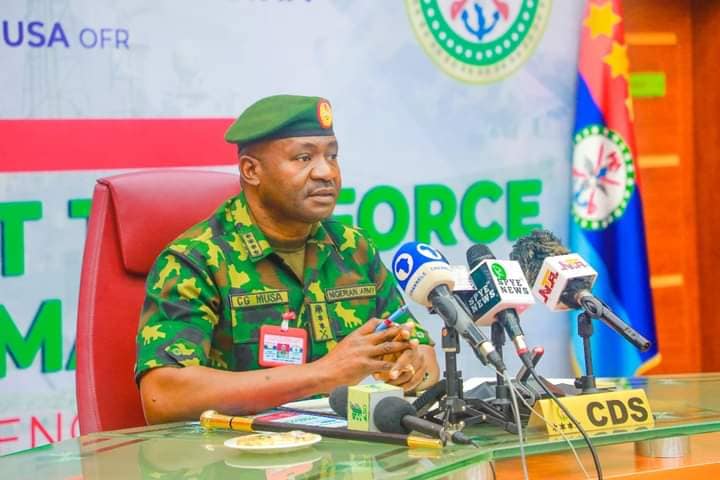Self-defence Nigeria is no longer a luxury—it is becoming a necessity. General Christopher Musa, Nigeria’s Chief of Defence Staff, has urged citizens to learn basic combat and self-defence skills. He made this strong recommendation during a recent interview on Channels Television’s Politics Today.
General Musa stressed that the rising insecurity across the country calls for a shift in mindset. Nigerians should treat self-defence training the same way they approach essential skills like swimming or driving. It is no longer optional, he said—it is a survival tool.
He specifically mentioned martial arts like Karate, Judo, and Taekwondo. These disciplines not only build physical strength but also sharpen awareness and discipline. In uncertain environments, these skills could make the difference between danger and safety.
Musa’s comments reflect growing public concern about personal safety. From urban centers to rural communities, people are facing unpredictable threats. Armed robbery, kidnapping, and violent attacks have become more common in certain areas. In such conditions, waiting for help is not always realistic.
The military chief explained that while security forces are doing their best, the country’s size and terrain pose serious challenges. Immediate response is not always possible. Therefore, citizens need to take proactive steps to protect themselves and their families.
Read more:Togo Aims to Improve Agricultural Yields with New Mechanization Initiative
He emphasized that self-defence does not promote violence. Instead, it empowers people with the confidence and ability to respond when needed. Knowing how to escape, disarm, or protect oneself in a threatening situation could be life-saving.
General Musa’s message goes beyond individual action. He encouraged communities to organize local training programs. Schools, clubs, and religious centers can play a role in offering self-defence classes. Building safer societies starts with empowering individuals.
He also highlighted that self-defence promotes mental resilience. It teaches people to stay calm under pressure and think clearly in crisis. These qualities are valuable not only in emergencies but in everyday life as well.
Nigeria’s security landscape is changing. While government forces continue to fight insecurity, citizens must also adapt. Self-defence training offers a practical and immediate way to do that.
Public reaction to Musa’s advice has been mixed. Some agree strongly and have already enrolled in classes. Others believe the government should focus more on providing security than encouraging self-help. Still, the message is gaining traction, especially among young adults.
What’s clear is that self-defence Nigeria is becoming part of the national conversation. And that conversation may help drive wider awareness and preparedness.
Learning to protect yourself is not about fear—it is about readiness. As threats evolve, so must the tools and mindset of the people. General Musa’s call is a timely reminder that safety starts with knowledge, and knowledge begins with action.
The streets may not get safer overnight, but citizens can become stronger today. In a world where danger can strike without warning, being prepared is no longer a choice—it’s a duty.





